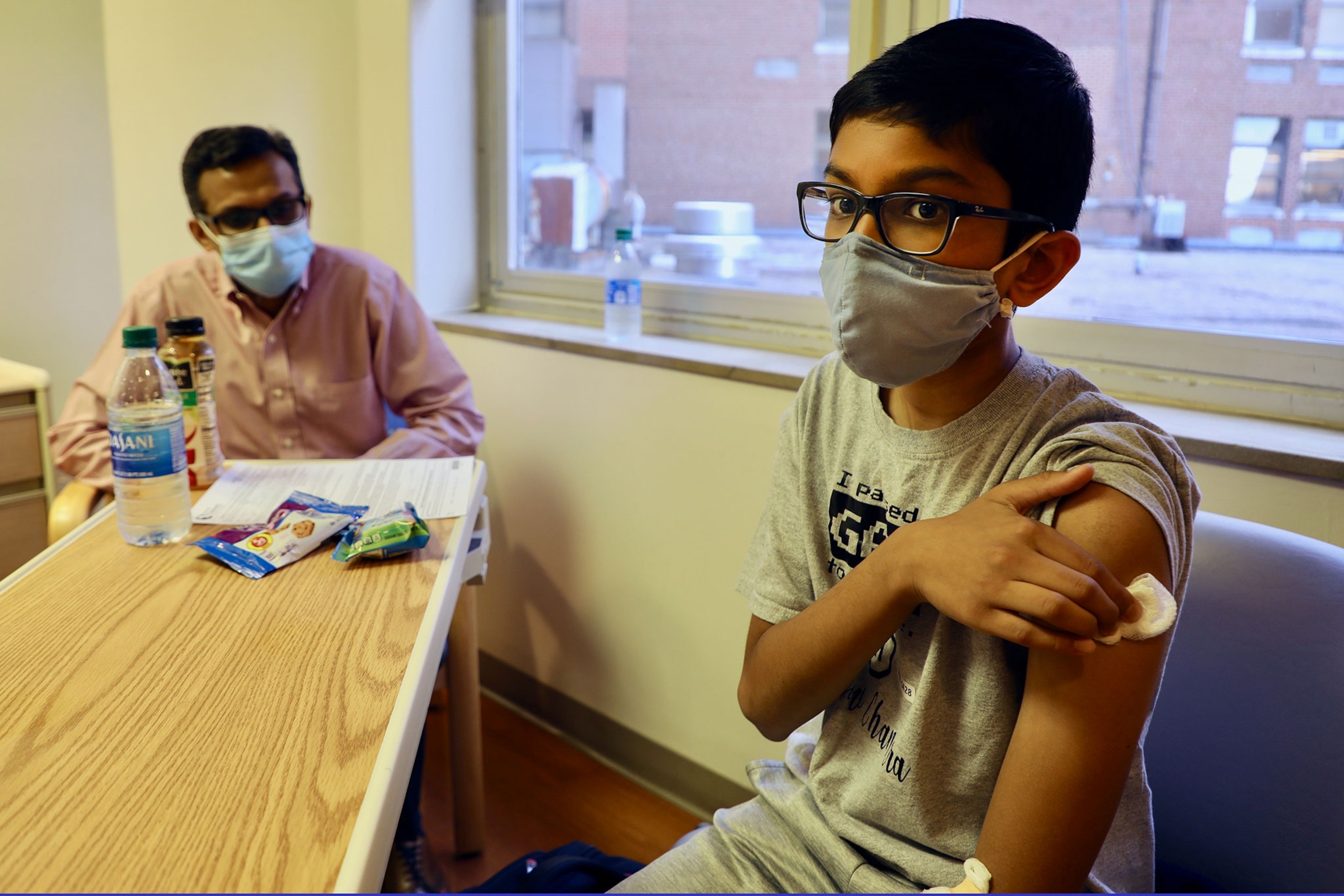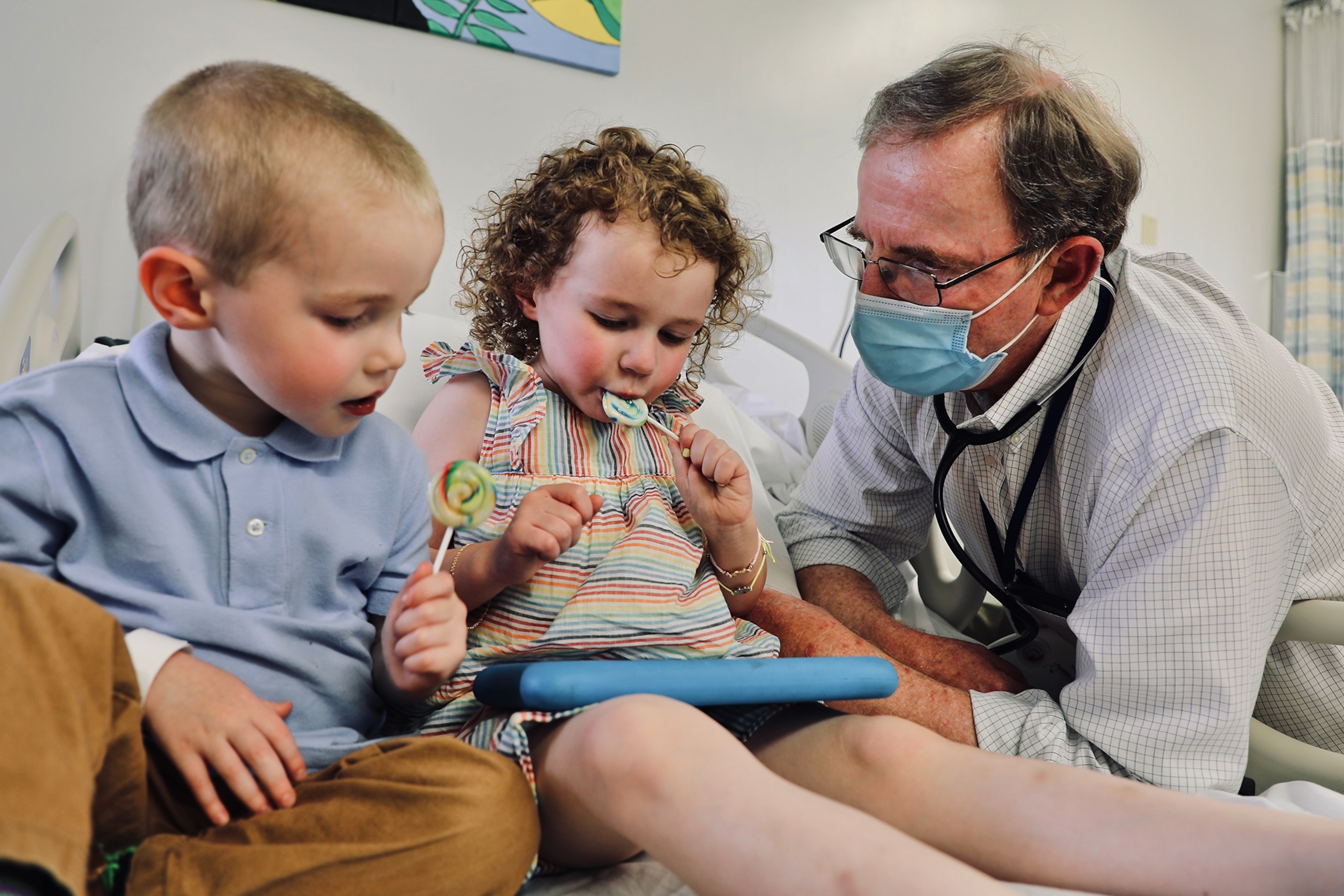
FDA clears the way for adolescents ages 12 to 15 to get vaccinated
Experts encourage parents to vaccinate their children, but worry some won’t.
The U.S. Food and Drug Administration announced today that it will authorize the Pfizer-BioNTech coronavirus vaccine for emergency use for people age 12 to 15. The moves makes the Pfizer-BioNTech jab the first authorized for emergency use in adolescents, taking the country another step closer to expanding vaccine access for all Americans.
But the news doesn’t mean parents can instantaneously dash out and vaccinate their teens. A panel of medical experts at the Centers for Disease Control and Prevention must first meet to review the vaccine’s clinical trial data and issue guidance for its use in adolescents. If the CDC adopts the committee’s recommendations, then states will be free to roll out the vaccine to the designated age group.
The authorization comes after Pfizer shared the results of its clinical trial for adolescents in March. The trial showed the vaccine is as efficacious, if not more so, for the youngsters as it is for adults. In December, the FDA authorized the Pfizer-BioNTech vaccine for use in people older than 16 after data showed the shots were 95 percent efficacious. Based on the new data, the mRNA vaccine offered adolescents 100 percent efficacy without serious side effects.
“The data continues to accumulate regarding its safety and efficacy,” says Danielle Zerr, a pediatrician and division chief of pediatric infectious disease at the University of Washington.
Opening up vaccination to adolescents may come as a relief to some parents who are eager to not only protect their children from the disease, but also resume normal life, such as in-person school. Some experts say it’s also the next move to edge the country closer to herd immunity, in which the majority of people become immune from COVID-19 through vaccination or infection, and the virus can no longer be as easily transmitted.
Vaccines for all ages
Children are less susceptible to serious COVID-19 outcomes than adults, and their deaths caused by the disease are even rarer. But the risk is still not zero, says James Wood, a pediatrician and assistant professor of pediatrics at the Indiana University School of Medicine.
Of the more than 576,000 people in the U.S. who have died from COVID-19, about 300 were children. And in a small number of cases—about one in a thousand—infected kids can later develop multi-system inflammatory syndrome, a sometimes-deadly condition.
“To me and the medical community, the benefits really weigh in favor of getting vaccinated,” says Wood, “because of that small but very real risk for kids.”

But while vaccines have been authorized for adults since December 11, kids are tested separately from adults in vaccine clinical trials, in part because their youthful immune systems are not as mature as adult’s, and so their vaccine response can be stronger. Separate trials ensure both the children’s safety and that they’re given the right vaccine dose.
In late March, Pfizer also kicked off clinical trials of its two-shot vaccine for children ages 6 months to 11 years old. The company said on May 4 that it expects to file for emergency use authorization for its vaccine in kids 2 to 11 years old by September. Both Moderna’s two-dose vaccine and Johnson & Johnson’s one-dose jab are so far only authorized for adults 18 and older, but the companies are in the process of conducting clinical trials involving younger people.
According to 2019 U.S. Census Bureau estimates, people younger than 18 account for about 22 percent of the American population. That’s why “it is really important for kids to be included” in vaccination efforts, says Malia Jones, an associate scientist in health geography at the University of Wisconsin-Madison Applied Population Laboratory. Their inclusion is “good news for herd immunity.”
Vaccine hesitancy among parents
However, the pace of vaccinations has slowed across the country. While more than 100 million Americans have been fully vaccinated, a substantial number of adults have not. About 17 percent of adults reported in a recent poll that they are unsure whether they will vaccinate at all. Another 13 percent of Americans say they will “definitely not” get their shots.
While many parents will rush out to get their children shots as soon as the CDC guidance is released, some experts worry that vaccine-hesitant adults will keep their children from getting inoculated.
“Hesitant parents have a right to want to understand and be careful,” says Zerr. “These are their children that we’re talking about. But after you question, you want to educate yourself.”
According to a Pfizer-BioNTech press release, of the 2,260 children tested in the trial, 18 got infected with the coronavirus—and all were part of the trial’s placebo group. Inoculated kids reported side effects similar to those in adults: pain at the injection site, fatigue, headache, chills, fever, and aches, all of which generally resolved in about 24 hours.
During the pandemic, “there has been a tremendous impact on our children,” from the closure of schools to the isolation of social distancing, explains Evan Anderson, a pediatrician and associate professor of pediatrics and medicine at Emory University School of Medicine. “The ability for them to get vaccinated is an important step toward getting back toward something more normal.”
Some health experts have raised ethical questions about vaccinating kids before trying to get shots into more hesitant adults, who are more likely to suffer sever COVID-19 outcomes. Others wonder whether herd immunity is even possible, with vaccine reluctance currently so high. But “imagining that we’re going to pump the brakes and reach those people that are really hard to convince before we extend it down to other groups is, I think, really pie-in-the-sky thinking,” Jones says.
Anderson agrees: While children are less likely to transmit the disease, he says, they are “in community with one another, with their parents, their teachers, and their grandparents. It will not be possible for us to achieve herd immunity without implementing vaccination in all ages.”







